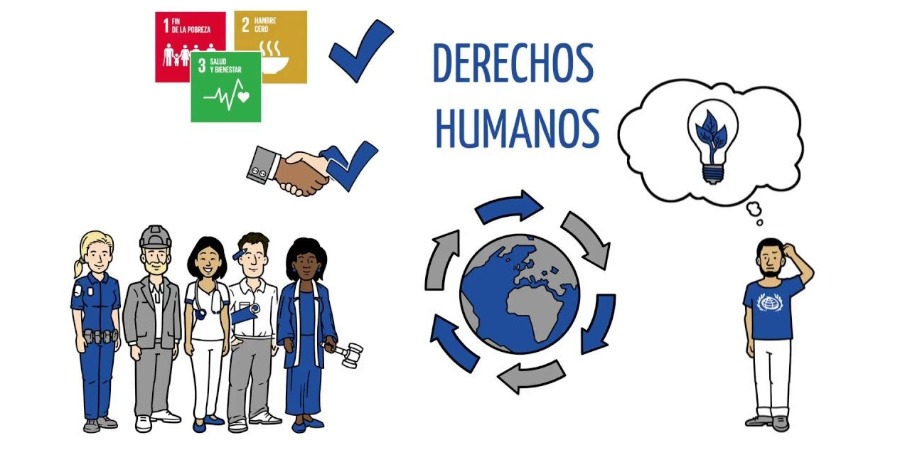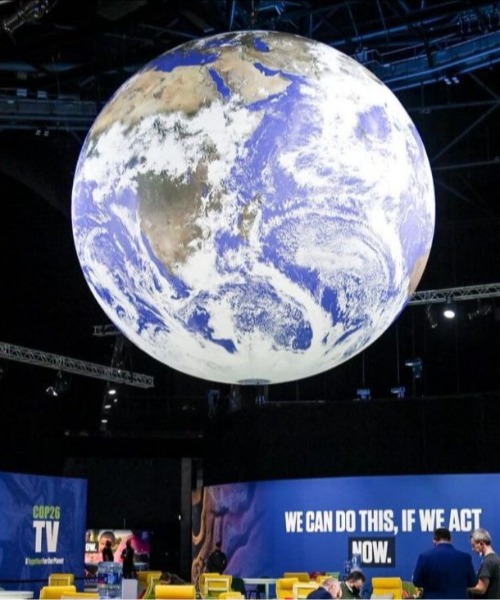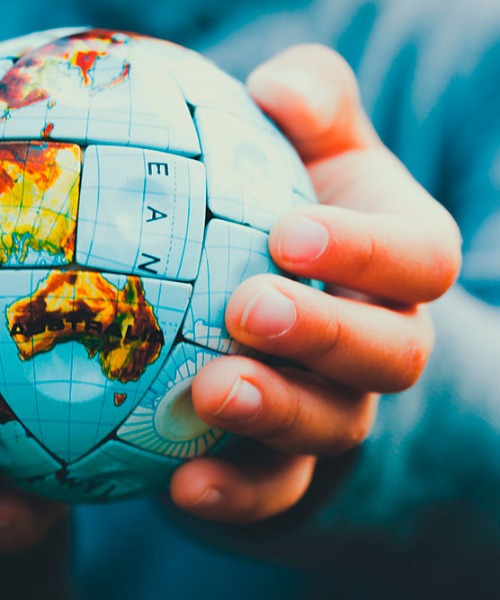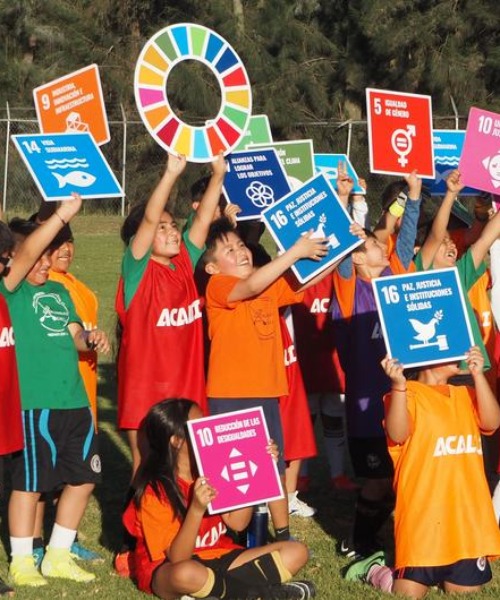Sustainable Development as a Matter of Human Rights
- 26 de September de 2020

“Achieving the transformational promise of the SDGs depends on ensuringthe empowerment, inclusion, and equality of all people, which is so closely interconnected withhuman rights.” (OHCHR)
There is an enormous consensus in the world regarding the serious and grim challenges that humanity will have to face in the near future, to the extent that our societies are not fully aware that our consumption models, the exploitation of natural resources, and the way we relate to the environment are leading our planet to collapse. On the 22nd day of August, we reached the 'Earth Overshoot Day', meaning that, as of that date, humanity had consumed more resources than the planet can generate in 2020. In other words, we will need to “borrow” resources from next generations in order to obtain what we need for the rest of the year.
In fact, the dreadful effects can be seen now throughout the planet: Inequality is on the rise in our world, with the richest 10 percent of the population getting up to 40 percent of the total global income while the poorest 10 percent earn only 2-7 percent. Nowadays, a huge portion of the world population is fighting against poverty in its worst expressions: hunger and food insecurity.
In this sense, another shocking record in terms of forced population displacement was reached in 2019, with a total of 79.5 million people who were forced to leave their homes as a result of persecution, conflict, violence and violations of their Human Rights. This figure, which has been exceeded since then, does not fully reflect the consequences of war and conflict for the civilian population and the countries that suffer from it. Syria has been bleeding to death in a relentless conflict for 10 years now. Libya tries to close a bloody chapter that began in 2011, unleashed after the chaos that followed the fall of Muammar Gaddafi, with an armed conflict that implied the intervention of several foreign powers and left the country on the verge of becoming a failed State. South Sudan has been experiencing a devastating civil war for 7 years, a situation aggravated by the vulnerability of this young country to extreme weather events such as droughts and floods that can put the weak structures of the country in check in a matter of weeks. Even the entire Sahel region is sinking into instability due to the presence of fundamentalist terrorist groups mixed with slow-moving climatic effects that push the population to hunger and food insecurity. Furthermore, in our region, the humanitarian crisis and insecurity in Venezuela pushed more than 4.5 million Venezuelans to seek refuge in neighboring countries.[2]
Adding insult to injury, climate change has become the most urgent threat against humanity. Its effects are already being felt in all parts of the planet jeopardizing the most diverse aspects of human development. Scientific predictions developed for the future are even worse, with even more extreme climatic phenomena, and also with slow-onset processes such as prolonged droughts and floods that will especially affect the development and habitability conditions of enormous proportions of the planet, which means deepening inequalities and vulnerabilities in the most disadvantaged regions. A clear concrete example is the displacement of a total of 24.9 million people in 2019 due to natural disasters, a figure that surpasses the new displacement caused by conflict and violence by 3 to1.
And in the face of this bleak picture, the comparison we propose as the title of this essay is surely fundamental. Speaking of sustainable development means to speak precisely of Human Rights. And in this sense, considering that Human Rights are interrelated, interdependent and indivisible, a comprehensive, cross-sectional and purposeful action map can be found among the postulates of the 2030 Agenda where strategies can be implemented to address the problems mentioned above. We are not exaggerating when saying that the Sustainable Development Goals represent the most ambitious global project to end poverty, protect the planet, and ensure that all people enjoy peace and security, maintaining the premise of “leaving no one behind”.
This is not a call only to the States. The 2030 Agenda can be implemented by the most diverse actors, such as international organizations, supra-state entities, companies, non-governmental organizations, educational institutions, cities, and individuals. With regard to cities, it is necessary to highlight the potential impact that local government policies can have on the population and territory, considering that cities are the biggest contributors to the emission of greenhouse gases and, in parallel, they are mostly exposed to the effects of climate change and disasters. Moreover, cities are also the engine of economic progress and great centers of innovation. It is clear that initiatives that include economic development, with social inclusion and respect for the environment, can be implemented more efficiently in cities. Sustainable development is based precisely on these pillars, eloquently synthesizing 169 goals that seek to end hunger and poverty, protect the planet from environmental degradation, guarantee prosperity for all people, and work for peaceful, just and inclusive societies. Thus, it is highly important to think about the fact that there can be no sustainable development without peace and no peace without sustainable development.
And, last but not least, SDGs are an opportunity for the youth, that enormous critical mass which has been gaining voice and participation in such important debates, but that still needs to be empowered so that it can develop its full potential. Let's imagine the valuable contribution that you, students and young professionals of the Inland Empire, can make in the search for innovative solutions to the main challenges facing the region and the world. Youth is a strategic actor in sustainable development and is at the forefront in the defense of Human Rights. But, fundamentally, you are the generations that still have time to generate that change towards a better world for all. And, in this sense, the opportunities to get involved are as wide as the very challenges that our future holds.
As we have previously stated, the Human Rights approach with which the 2030 Agenda embraces SDGs is evident, empowering young people to walk towards a more just and equitable world with opportunities for all. We are entering the “Decade of Action”, an opportunity in which the rhetorical discourses must give way to action, seeking to generate the necessary alliances and consensus to achieve them. We are running out of time to achieve this titanic goal. However, it is nothing more than a longing for a better world for all, and it is worth trying.
References
- Alvaredo, F., Piketty, T., Chancel, L., Saez, E., Zucman, G., Perrotini, I., & Muller, N. 2018. Informe sobre la desigualdad global 2018. Grano deSal.
- Amnesty International. 2018. Inequality in 2018. Available online at: https://www.amnesty.org/en/latest/research/2018/12/rights-today-2018-inequality/
- FAO, IFAD, UNICEF, WFP and WHO. 2019. The State of Food Security and Nutrition in the World 2019. Safeguarding against economic slowdowns and downturns. Rome,FAO.
- Muggah, R. (2017). Europe’s refugee crisis is making headlines, but Latin America’s is just as alarming. World Economic Forum. Disponible online en:https://www.weforum.org/agenda/2017/03/refugee-crisis-migration-europe-latin-america.
- OHCHR. Empowerment, Inclusion, Equality: Accelerating sustainable development with human rights.
- Salvatici, S. 2020. Fighting poverty and hunger. In A history of humanitarianism, 1755–1989. Manchester UniversityPress.
- UNHCR. 2020. Global Trends:Forced Displacement in 2019. Available online at: https://www.unhcr.org/statistics/unhcrstats/5ee200e37/unhcr-global-trends-2019.html
- UN. Transforming our world: the 2030 Agenda for Sustainable Development. Available online at: https://sustainabledevelopment.un.org/post2015/transformingourworld
By Raúl Gualtruzzi. Master´s degree on International Relations (Universitá di Bologna) and Legal coordinator of the SDG´s Advocates International Network.


